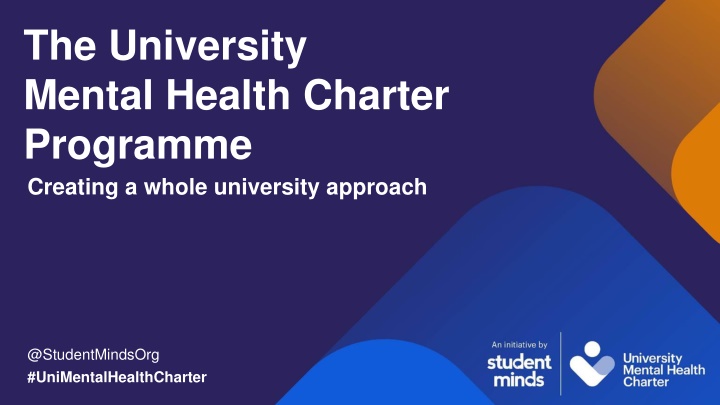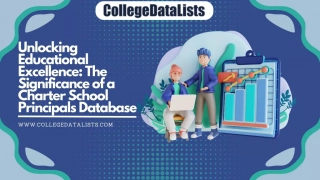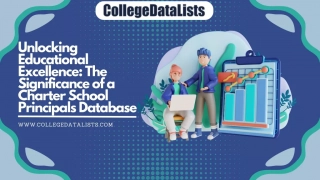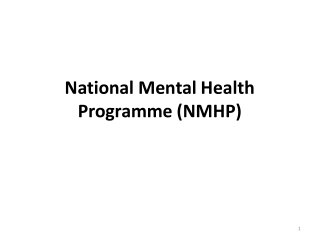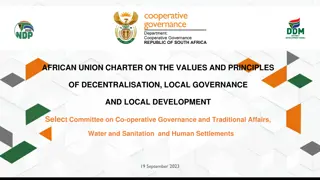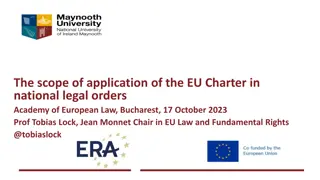University Mental Health Charter Programme: Creating a Whole-University Approach
A comprehensive look at the UniMentalHealthCharter programme emphasizing the importance of a whole-university approach to mental health. The content covers the dimensions, enabling themes, and generational change model proposed by Sally Kift.
Download Presentation

Please find below an Image/Link to download the presentation.
The content on the website is provided AS IS for your information and personal use only. It may not be sold, licensed, or shared on other websites without obtaining consent from the author.If you encounter any issues during the download, it is possible that the publisher has removed the file from their server.
You are allowed to download the files provided on this website for personal or commercial use, subject to the condition that they are used lawfully. All files are the property of their respective owners.
The content on the website is provided AS IS for your information and personal use only. It may not be sold, licensed, or shared on other websites without obtaining consent from the author.
E N D
Presentation Transcript
The University Mental Health Charter Programme Creating a whole university approach @StudentMindsOrg #UniMentalHealthCharter
#UniMentalHealthCharter Today's session Introduction Recap of the pre-workshop video Questions 1st Breakout Break Back to the detail 2nd Breakout Evaluation Close
#UniMentalHealthCharter Why a whole-university approach? The evidence clearly shows that our environment is a key determinant of mental health physical, cultural, social, personal What this means is that all universities already have a whole university impact on mental health Everything we do will be having an impact positively of negatively, whether we ve thought about it or not We must, therefore, become conscious of what we are doing and take steps to ensure our impact is as positive as possible
#UniMentalHealthCharter What is a whole-university approach? A whole university approach must include both adequately resourced, effective and accessible mental health services and proactive interventions. It must provide an environment and culture that reduces poor mental health, as well as supporting good mental health and facilitating staff and students to develop insight, understanding and skills to manage and maintain their own wellbeing.
#UniMentalHealthCharter Dimensions of the Charter + Enabling Themes
#UniMentalHealthCharter Defining Whole University Sally Kift offers a three generational model of change 1stgen: Ad hoc interventions, usually within departments, not connected or embedded and each intervention could disappear if key personnel leave 2ndgen: Work joining up between departments, easy synthesis being acted upon, some strategy led from the top, but some areas not yet connected and not fully embedded strategy views the issue as largely separate from, not core to, business 3rdgen: Issue embedded into the way the university views itself and its work, embedded into core aspects of university life, collaboration between all parts of the university as usual moving from embedded to habitual.
#UniMentalHealthCharter How to create a whole university approach Feedback and evidence from the Award process so far is that the Charter provides an effective framework around which to create a whole university approach Using the Charter framework and the Award process has helped universities create new structures, ways of working and interventions It has been particularly helpful in bringing together colleagues from across a university to have conversations that wouldn t otherwise have happened. This has helped build cohesive collaboration and resulted in solutions that otherwise would not have been developed
#UniMentalHealthCharter Who is currently involved in this work? Who is missing? What are the barriers to bringing people together? Have you had any success at overcoming those barriers so far?
#UniMentalHealthCharter Back to the detail For the detailed work on the principles of good practice, you may benefit from additional expertise This may exist internally within your university or you may be able to draw on the expertise of university partners Don t forget that students and staff are also experts by experience Who can help you understand the complexity and nuance in each area?
#UniMentalHealthCharter Navigating concerns Colleagues may be uncomfortable with the idea of other people making suggestions in their area Culture can play a key role in this - does it support collaboration and psychological safety or does it apportion blame quickly? The role of leaders is important in helping to move this
#UniMentalHealthCharter What expertise do you have? How can you help colleagues feel more comfortable with collaborative working? Where are you on your journey of generational change and what help do you need to the next part of the journey?
#UniMentalHealthCharter Evaluation How will you evaluate your work and demonstrate its positive impact? What evidence has informed your decision making, to ensure actions are likely to be helpful? How will you triangulate the evidence you have?
Thank you @StudentMindsOrg #UniMentalHealthCharter
